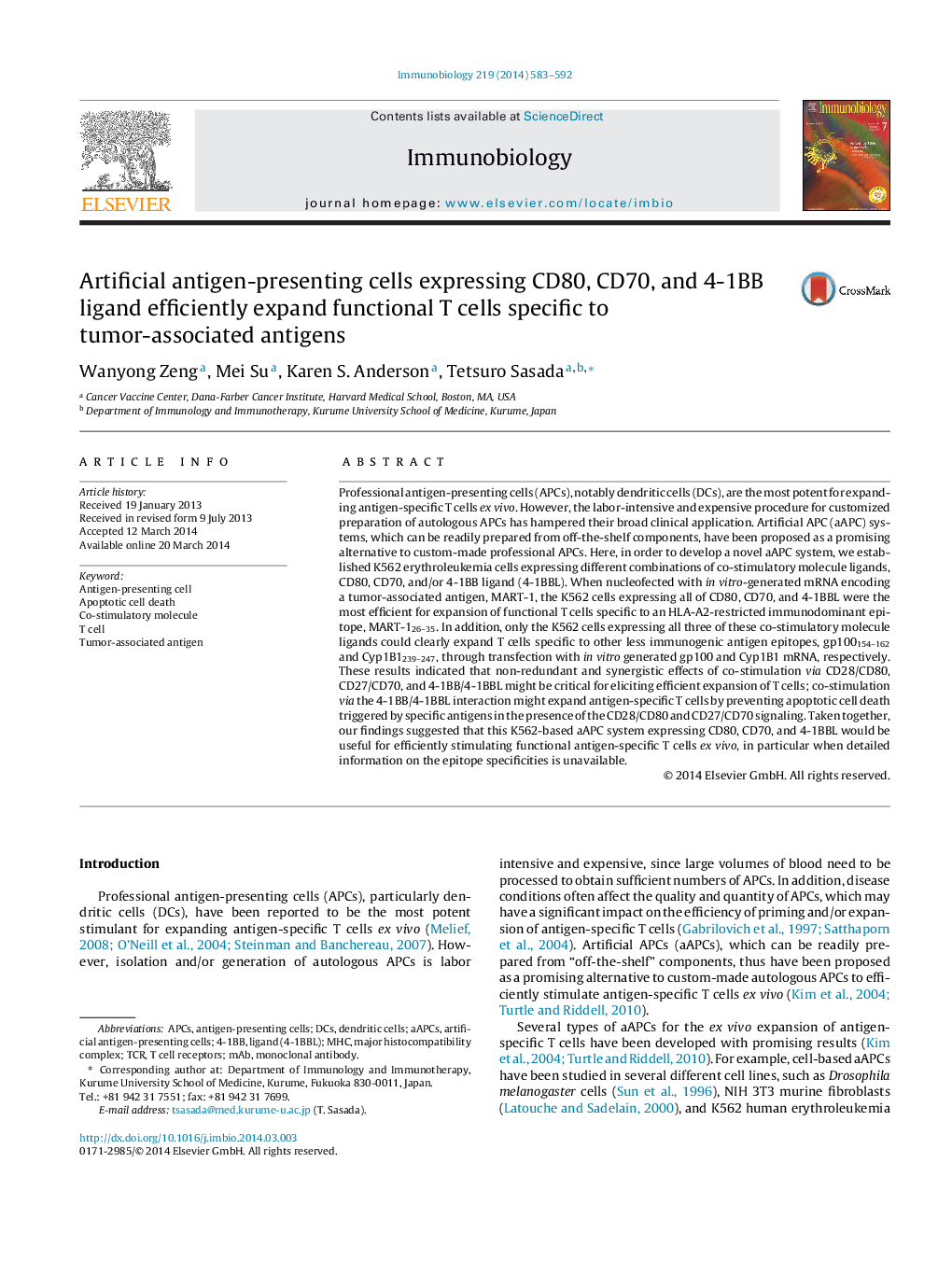| Article ID | Journal | Published Year | Pages | File Type |
|---|---|---|---|---|
| 2183193 | Immunobiology | 2014 | 10 Pages |
Professional antigen-presenting cells (APCs), notably dendritic cells (DCs), are the most potent for expanding antigen-specific T cells ex vivo. However, the labor-intensive and expensive procedure for customized preparation of autologous APCs has hampered their broad clinical application. Artificial APC (aAPC) systems, which can be readily prepared from off-the-shelf components, have been proposed as a promising alternative to custom-made professional APCs. Here, in order to develop a novel aAPC system, we established K562 erythroleukemia cells expressing different combinations of co-stimulatory molecule ligands, CD80, CD70, and/or 4-1BB ligand (4-1BBL). When nucleofected with in vitro-generated mRNA encoding a tumor-associated antigen, MART-1, the K562 cells expressing all of CD80, CD70, and 4-1BBL were the most efficient for expansion of functional T cells specific to an HLA-A2-restricted immunodominant epitope, MART-126–35. In addition, only the K562 cells expressing all three of these co-stimulatory molecule ligands could clearly expand T cells specific to other less immunogenic antigen epitopes, gp100154–162 and Cyp1B1239–247, through transfection with in vitro generated gp100 and Cyp1B1 mRNA, respectively. These results indicated that non-redundant and synergistic effects of co-stimulation via CD28/CD80, CD27/CD70, and 4-1BB/4-1BBL might be critical for eliciting efficient expansion of T cells; co-stimulation via the 4-1BB/4-1BBL interaction might expand antigen-specific T cells by preventing apoptotic cell death triggered by specific antigens in the presence of the CD28/CD80 and CD27/CD70 signaling. Taken together, our findings suggested that this K562-based aAPC system expressing CD80, CD70, and 4-1BBL would be useful for efficiently stimulating functional antigen-specific T cells ex vivo, in particular when detailed information on the epitope specificities is unavailable.
